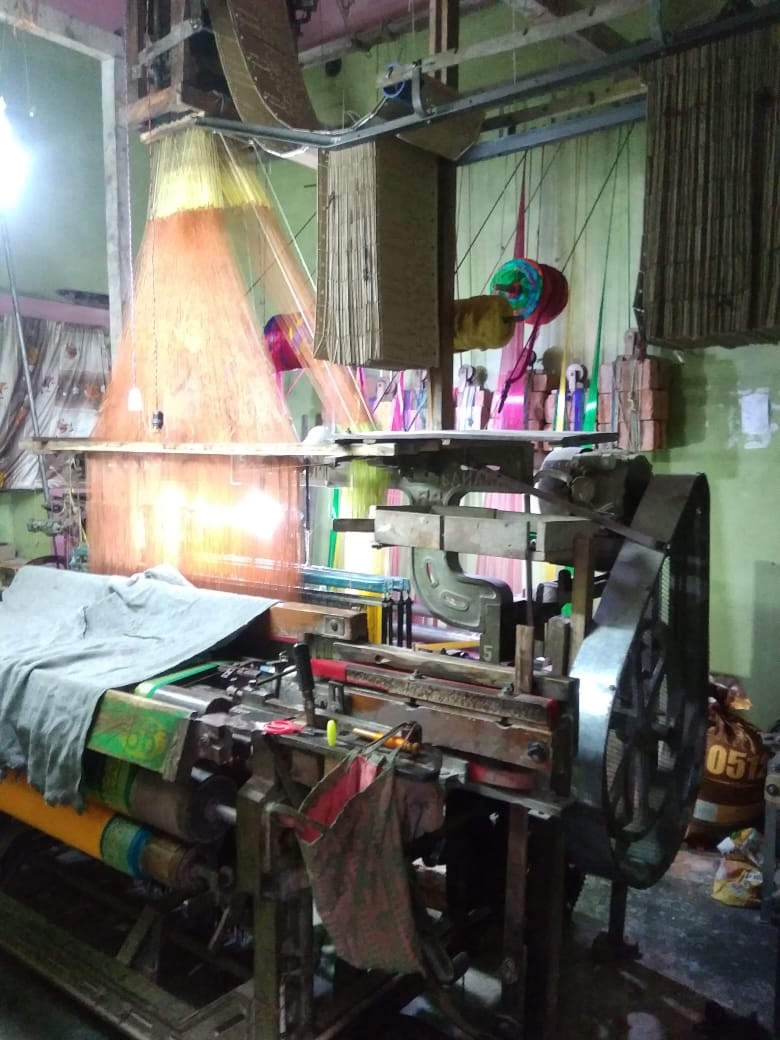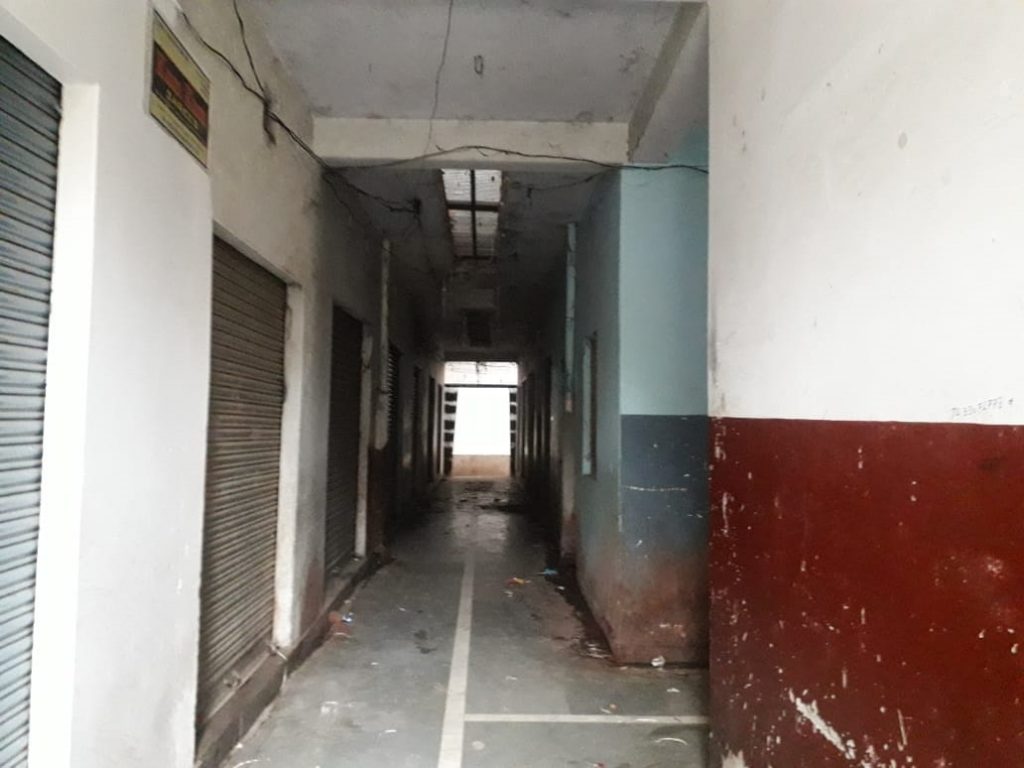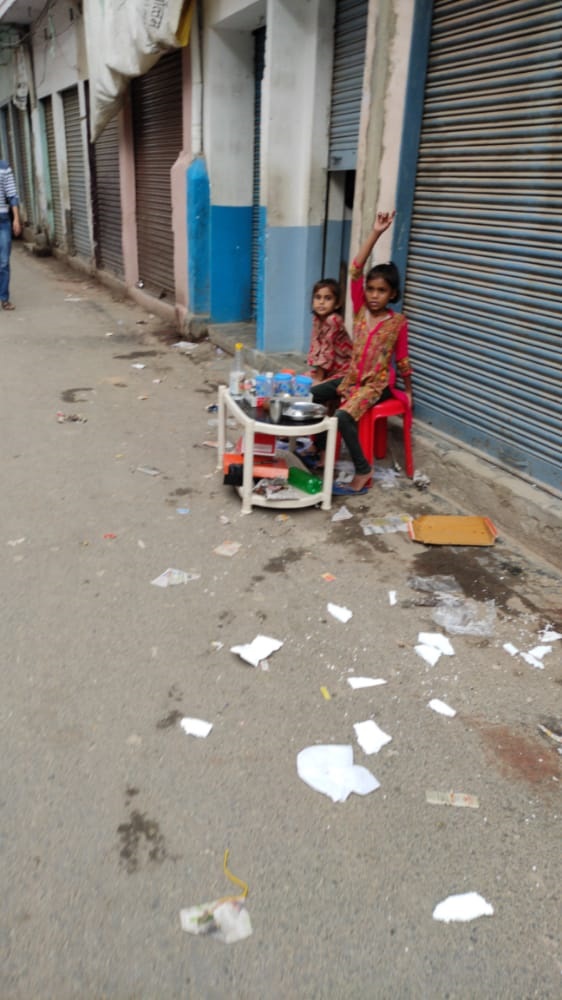“We are on the verge of starvation,” Saree weavers in Mau allege negligence by govt amid COVID-19 lockdown

Musheera Ashraf, TwoCircles.net
Mau: Amid the ongoing COVID-19 pandemic and the nationwide lockdown enforced in March, Saree weavers in Mau city of Uttar Pradesh complain of being at the verge of starvation and unable to make ends meet.
The city of Mau is 316 km from the capital city Lucknow. The city is well-known for manufacturing Banarasi Sarees so much so that India’s first prime minister, Jawahar Lal Nehru, had called it as the ‘Manchester of Handloom’ in 1957. The analogy drew inspiration from the fact that just like Manchester City in England was known as Cottonopolis (for its cotton mills) in the 19th century, Mau was known for its silk Sarees back then.
“We are short of money and facing great difficulty,” says Firoza Khatoon, a widow who lost her husband 20 years ago.
Firoza works as a weaver of Banarasi Sarees. She is a mother of four kids. Amid the pandemic, she finds it difficult to feed her children as “all the money that I had is now used and it’s difficult to survive now”.
For Firoza Khatoon it makes no difference if the shops for daily needs are open or not because she has no money to buy essentials. Whatever savings she had was spent already. “Weaving is a must for people to survive here in Mau. If this business is shut, people will starve,” she says. “I am living my life in difficulty,” she adds.
In the past months, Firoza says that she didn’t receive any help from the government. “My struggle is mine alone.”
[caption id="attachment_437780" align="alignnone" width="696"] Closed shops in Sadar Area, Mau[/caption]
Closed shops in Sadar Area, Mau[/caption]
After the outbreak of the COVID-19 pandemic, the weavers in Mau have undergone a significant downfall in their business, says Mujtaba, a resident of Mau.
Sadar Chowk, a Muslim majority area is sealed and no one is allowed to enter. “Officials have imposed a strict lockdown in the area where we have our business but the situation in living areas is worse,” says Sadat.
Ali who has a shop in the Sadar area said those working as weavers and artisans have no choice. “Some of them are selling cigarettes and tea outside their homes, which itself is a matter of concern,” he said.
According to Sadat, the road adjacent to Sadar Bazar has a mixed population in terms of religion. “They are opening their shops and people are working normally in such places,” he said.
A manufacturer of Sarees Sajid complains that, “the situation is getting worse as the administration has instructed to bar even areas where there are no coronavirus cases.”
“People are starving because there was a rumour that the deaths are increasing and in 2 hours 11 dead bodies have been buried, which is practically impossible,” Sajid said, adding, “The administration should have done an authentic investigation. Lockdown should be implemented keeping the livelihood of people in mind.”
A single Saree takes around 5 to 6 hours to make and the labour cost which goes in the making of one Saree is around 250 to 300 INR. The Sarees are then manufactured and exported to different cities.
“The loss is immeasurable. Two weeks ago, the working of looms was resuming gradually. It was hope for the poor labourers but now this strict lockdown again has hit people badly,” Sajid explains.
According to the weaver’s community, the government is deliberately doing this. “The people who were protesting against CAA-NRC were made targets and are charged with gangster violence charges,” says a businessman from Mau, who insisted on remaining anonymous.
“The government is working with the double agenda to hit Muslims anyhow,” he adds.
[caption id="attachment_437781" align="alignnone" width="562"] Children selling Roohafza, to compensate family earning[/caption]
Children selling Roohafza, to compensate family earning[/caption]
“If we will sell the Sarees, then only we will get the money. The labour force is the hardest hit. People are trying to help each other but it cannot go on for long,” he said.
He said the government is distributing relief in Hindu populated areas, “but we haven’t seen any help in Muslim areas.”
“People are at the verge of starvation,” says Sajid, whose Saree business has been impacted due to the restrictions and lockdown.
